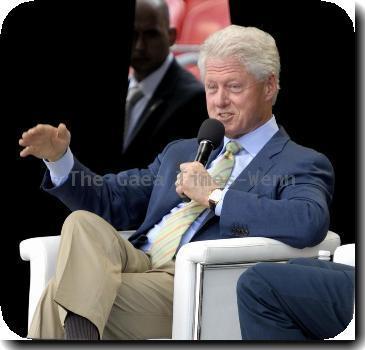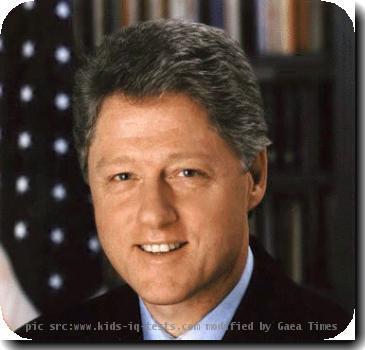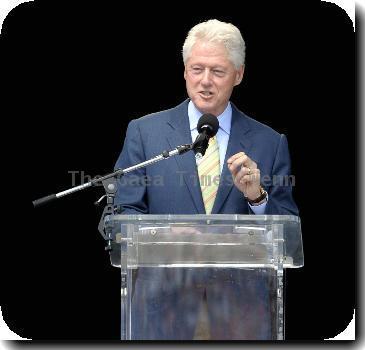A decade after Elian Gonzalez raid, key players on both sides consider it a battle lost
By Matt Sedensky, APWednesday, April 21, 2010
10 years after Elian, US players mum or moving on
MIAMI — When federal agents stormed a home in the Little Havana community, snatched Elian Gonzalez from his father’s relatives and put him on a path back to his father in Cuba, thousands of Cuban-Americans took to Miami’s streets. Their anger helped give George W. Bush the White House months later and simmered long after that.
Ten years later, the Little Havana home — for weeks the epicenter of a standoff that divided the U.S. — is a museum dedicated to Elian’s brief time in this country, but visitors are rare. Almost no one involved in the international custody case wants to talk about Elian, who is now a teenager back in Cuba.
Even most Cuban-Americans have moved on.
“It was a very sour taste left in their mouths,” said Andy Gomez, a senior fellow at the University of Miami’s Institute for Cuban and Cuban-American Studies. “But, realistically, it was a battle to be lost.”
Elian was just shy of his sixth birthday when a fisherman found him floating in an inner tube in the waters off Fort Lauderdale on Thanksgiving 1999. His mother and others drowned trying to reach the U.S.
Elian’s father, who was separated from his mother, remained in Cuba, where he and Fidel Castro’s communist government demanded the boy’s return.
Elian was placed in the home of his great-uncle, Lazaro Gonzalez, while the Miami relatives and other Cuban exiles went to court to fight an order by U.S. immigration officials to return him to Cuba. Janet Reno, President Bill Clinton’s attorney general and a Miami native, insisted the boy belonged with his father.
When talks broke down, she ordered the raid carried out April 22, 2000, the day before Easter. Her then-deputy, current U.S. Attorney General Eric Holder, has said she wept after giving the order.
Associated Press photographer Alan Diaz captured Donato Dalrymple, the fisherman who had found the boy, backing into a bedroom closet with a terrified Elian in his arms as an immigration agent in tactical gear inches away aimed his gun toward them. The image won the Pulitzer Prize and brought criticism of the Justice Department to a frenzy.
No one answered the AP’s repeated calls to a number listed for Dalrymple in the Miami area, and there was no response to interview requests sent through intermediaries.
Lazaro Gonzalez declined to comment, as did his daughter, Marisleysis, who became Elian’s surrogate mother during his U.S. stay. The Justice Department has never released the identity of the agent and did not immediately respond to an AP request this week for the agent’s name.
Clinton, who was in Miami last weekend, said he would still make the same decision because it conformed with international child custody law.
“I did everything I could to try to have this resolved in a peaceful way,” he said. “Believe me, I hated what happened because I thought we would be able to do it in a different way.”
More than 300 protesters were arrested in the hours after the raid, and the community’s outrage did not subside. Al Gore, the sitting vice president, lost Florida that November to George W. Bush by a mere 537 votes, and with it the White House. Many pundits said the Elian debacle made the difference.
“There was no doubt in the minds of many in this community that the Democratic administration had to be accountable for what was seen as the terrible treatment of a child and the terrible treatment of the child’s family,” said Kendall Coffey, a former U.S. attorney who represented Elian’s Miami relatives, then split with his legal team to join Gore’s court battle over the Florida recount.
Reno, a Miami native, ran for governor in Florida in 2002 but lost in a Democratic primary marred by voting problems. She did not return phone messages left at her suburban Miami home.
Within a few years, Elian faded from political discussions. Former U.S. Sen. Mel Martinez, a Cuban-American, said the boy’s name never came up when he ran for Senate in 2004 as a Republican. Another Cuban-American is running for Senate — former Florida House Speaker Marco Rubio, a West Miami Republican — without any mention of Elian.
“I think the Elian event was an episode and not something that’s ongoing,” Martinez said recently.
Attorneys and state child welfare officials say the lesson they learned from Elian’s case was to focus on a child’s family relationships instead of immigration issues. Don Winstead, deputy secretary of Florida’s Department of Children and Families, said that method was put to use in the lone case he could remember since Elian involving a child with a parent in Cuba seeking custody.
In 2005, a Cuban woman brought her 2-year-old daughter to the U.S. without the father’s permission. The woman attempted suicide and the child was placed with foster parents, a wealthy and prominent Cuban-American couple who tried to adopt her and her much older half-brother.
After a long court battle, the girl’s father agreed in the fall of 2008 to move to the U.S. for two years to live with the girl before they could return to Cuba. The attorneys in that case refused comment or didn’t return phone calls from the AP.
As for Elian, the only people who seem to want to commemorate his saga serve in Cuba’s government. Earlier this month, officials there released photos of now-16-year-old Elian wearing an olive-green military school uniform and attending a Young Communist Union congress.
Cuba usually organizes ceremonies marking Elian’s birthday each Dec. 7 at his school and elsewhere in his hometown of Cardenas, on Cuba’s north coast. Before he became ill, Fidel Castro would usually attend. The foreign press is never invited, however, and only learns about what occurs from state media coverage.
The Cuban government, which tightly controls media access to Elian and his father, said neither is willing to give an interview. A government representative agreed to forward written questions from the AP to Elian, but there has been no response.
Pepe Hernandez, president of the Cuban American National Foundation, said his group predicted in 2000 that Elian would become a prop for the Castro government if he were returned. It was one reason, he said, the group fought for him to be kept in the U.S. and would do it again today, although behind the scenes to avoid negative publicity for the Cuban-American community.
“We knew what this kid was going to be subjected to,” Hernandez said. “And time has proven us right.”
Associated Press writers Pete Yost in Washington and Will Weissert in Havana and videographers Suzette Laboy and Tony Winton in Miami contributed to this report.
Tags: Bill Clinton, Caribbean, Cuba, Florida, George w. bush, Latin America And Caribbean, Miami, North America, United States



